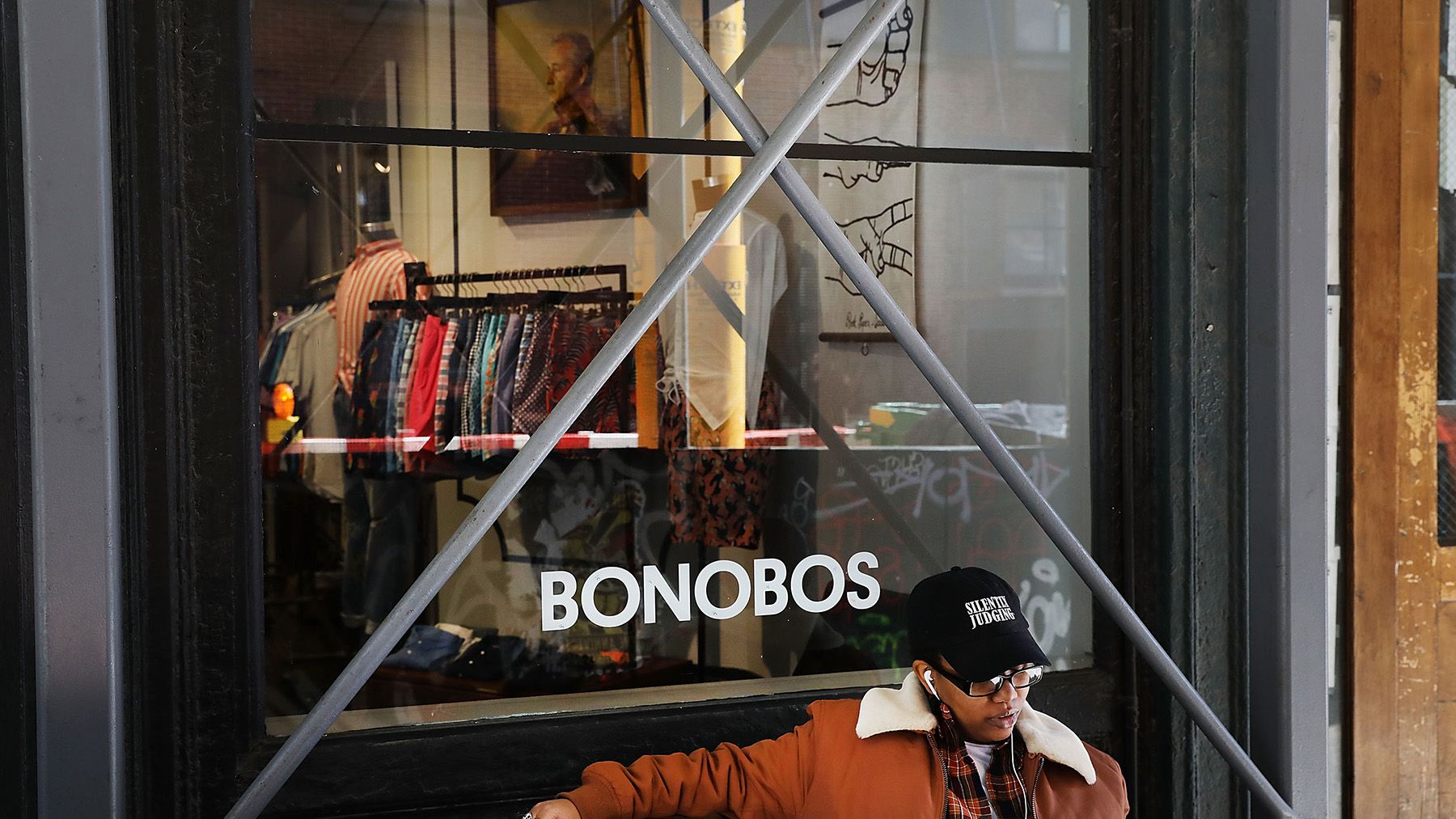
Walmart is selling direct-to-consumer menswear brand Bonobos to mall retailer Express and holding company WHP Global for $75 million. WHP Global will acquire Bonobos outright, with Express taking control of the menswear brand’s operating assets.
The deal, which is expected to close before the end of this quarter, is a knockdown from the $310 million valuation Bonobos secured when it sold to Walmart back in 2017. Rising interest rates means that some profitable brands are forced to take lower valuations, but it’s also the latest sign of Walmart’s failed efforts to move into the DTC sector.
When Walmart bought Bonobos, it appointed then-chief executive Andy Dunn to oversee the retailers’ growing stable of direct-to-consumer brands. Those efforts would prove futile. Walmart sold online womenswear brand ModCloth to private equity firm Go Global in 2019 just two years after acquiring the start-up. Jet.com, the online marketplace Walmart bought for a record-breaking $3 billion in cash in 2016, would go on to spurn billions in losses for the retail giant. Walmart shuttered Jet.com in 2020. Still, Walmart has built a large e-commerce business with some executives from the brands it acquired playing a role in shaping its online shopping strategy.
But the sell-off is not a reflection of whether Bonobos can grow profitably. Express says Bonobos, which helped usher in a wave of online direct-to-consumer brands when it launched in 2007, will help the retailer shore up its profits and cash flow generation this year. Bonobos generated around $200 million in sales in 2022 and maintained about 60 percent gross margins. It will also give Express’ popular menswear business a much-needed merchandising touch-up.
These types of deals are popular lately. As the DTC sector faces a slowdown and pressure to turn profits or go under, strategics are on the hunt for money-making digital brands that can help them reignite growth.
Victoria’s Secret acquired size-inclusive intimates brand Adore Me last November for $400 million in cash. At the time, the 11-year-old start-up was projecting over $200 million in sales for the year with EBITDA profits and 55 percent gross margins. Victoria’s Secret was struggling to attract enough new customers despite a rebranding that has seen it ditch the ultra-sexy marketing it relied on for decades.

